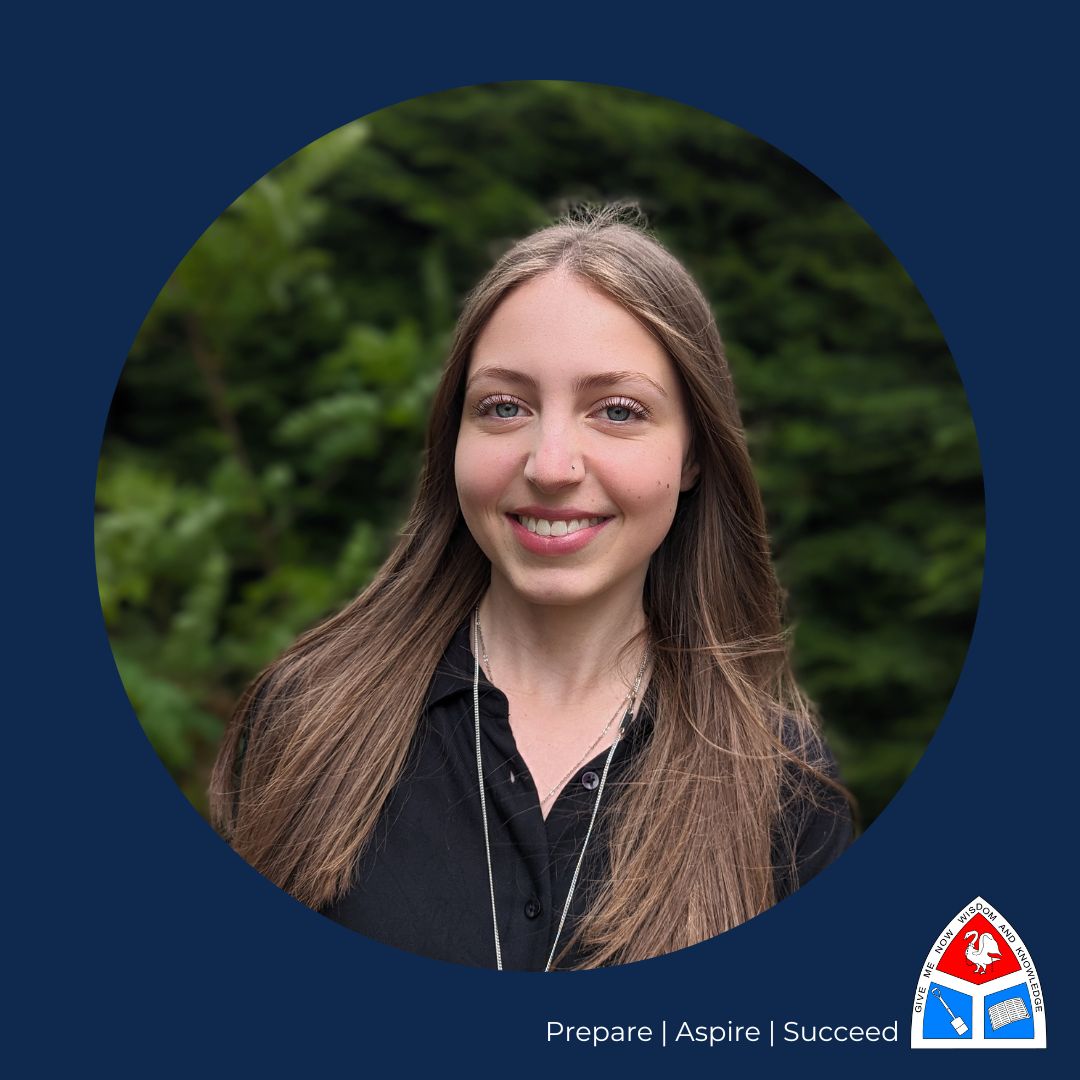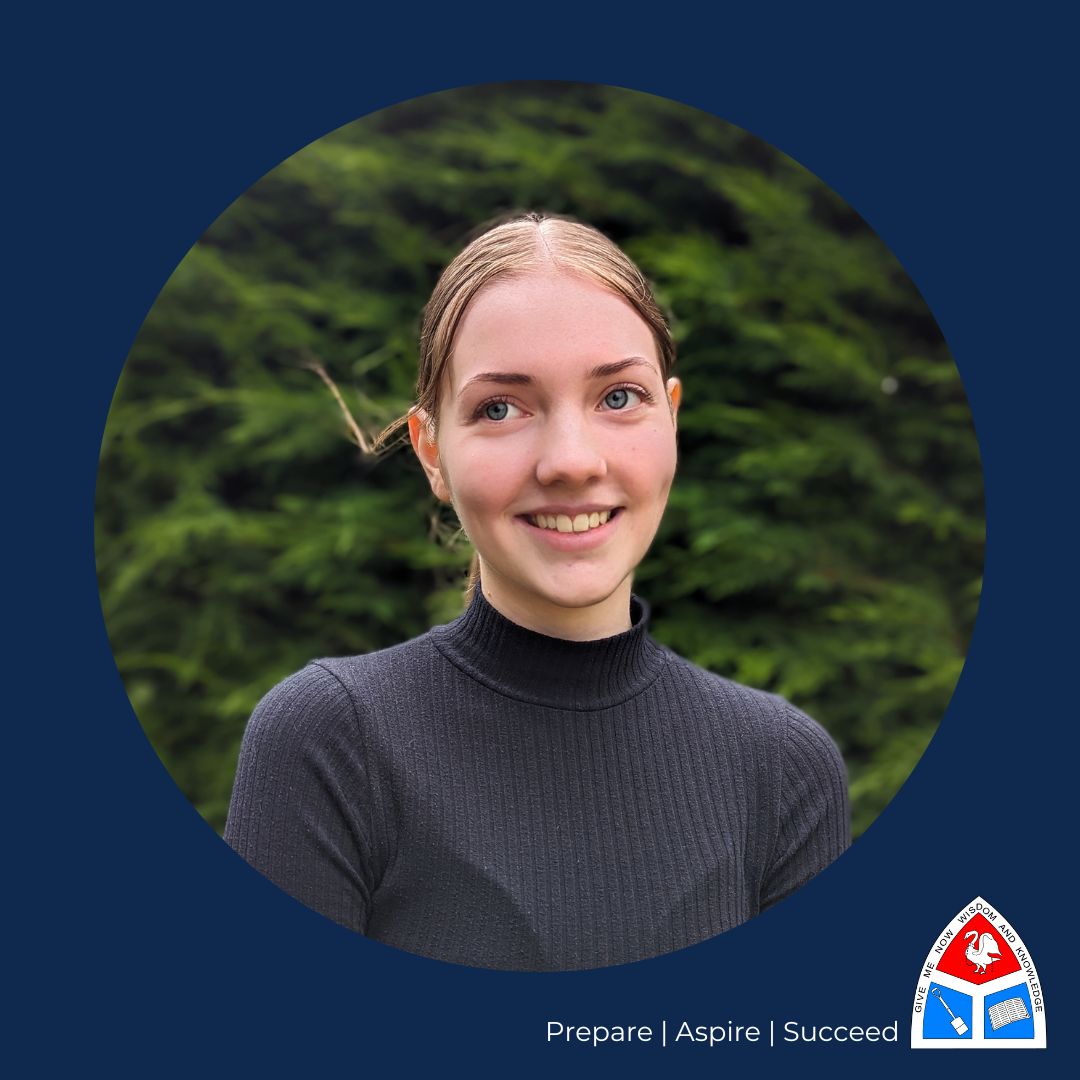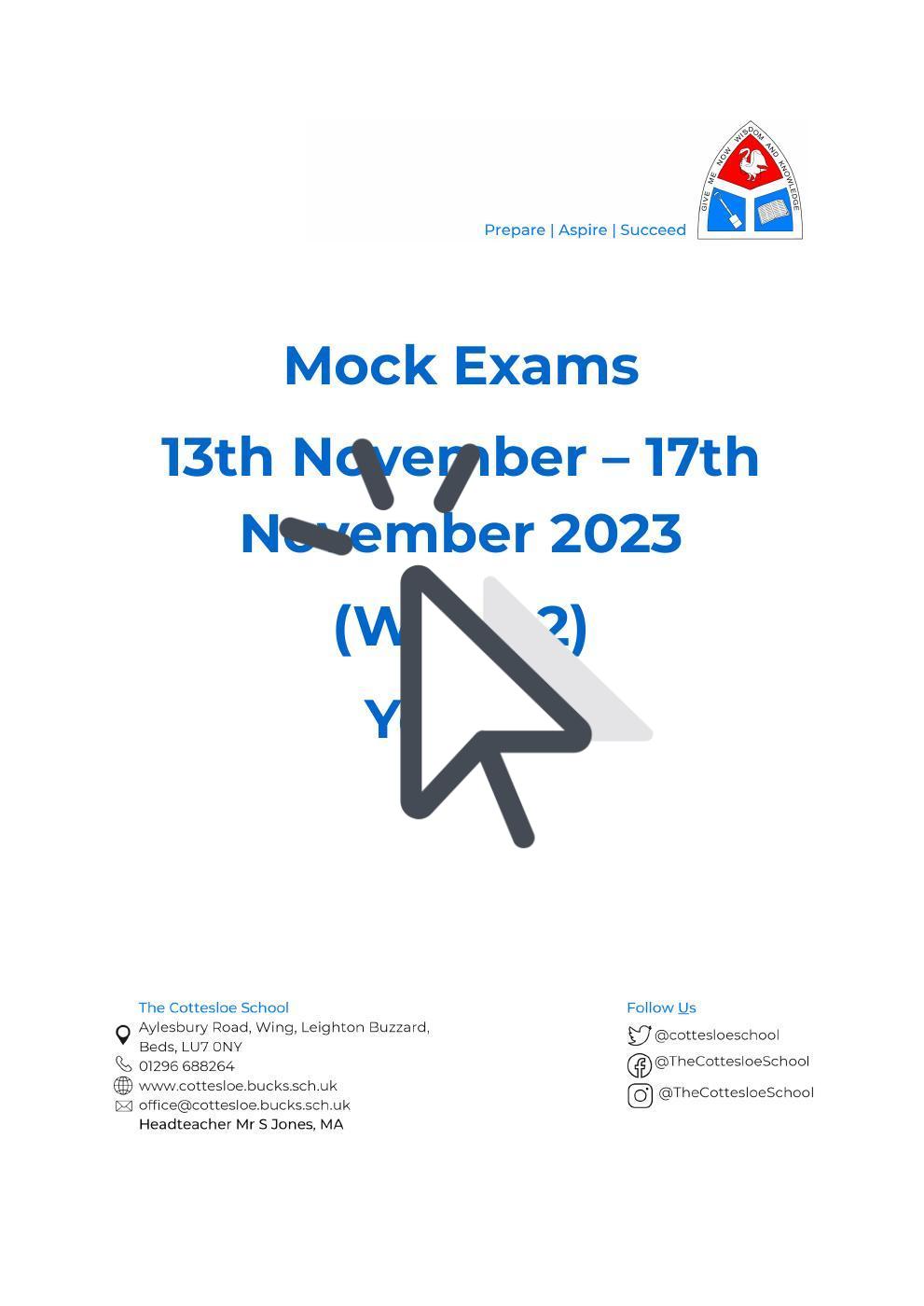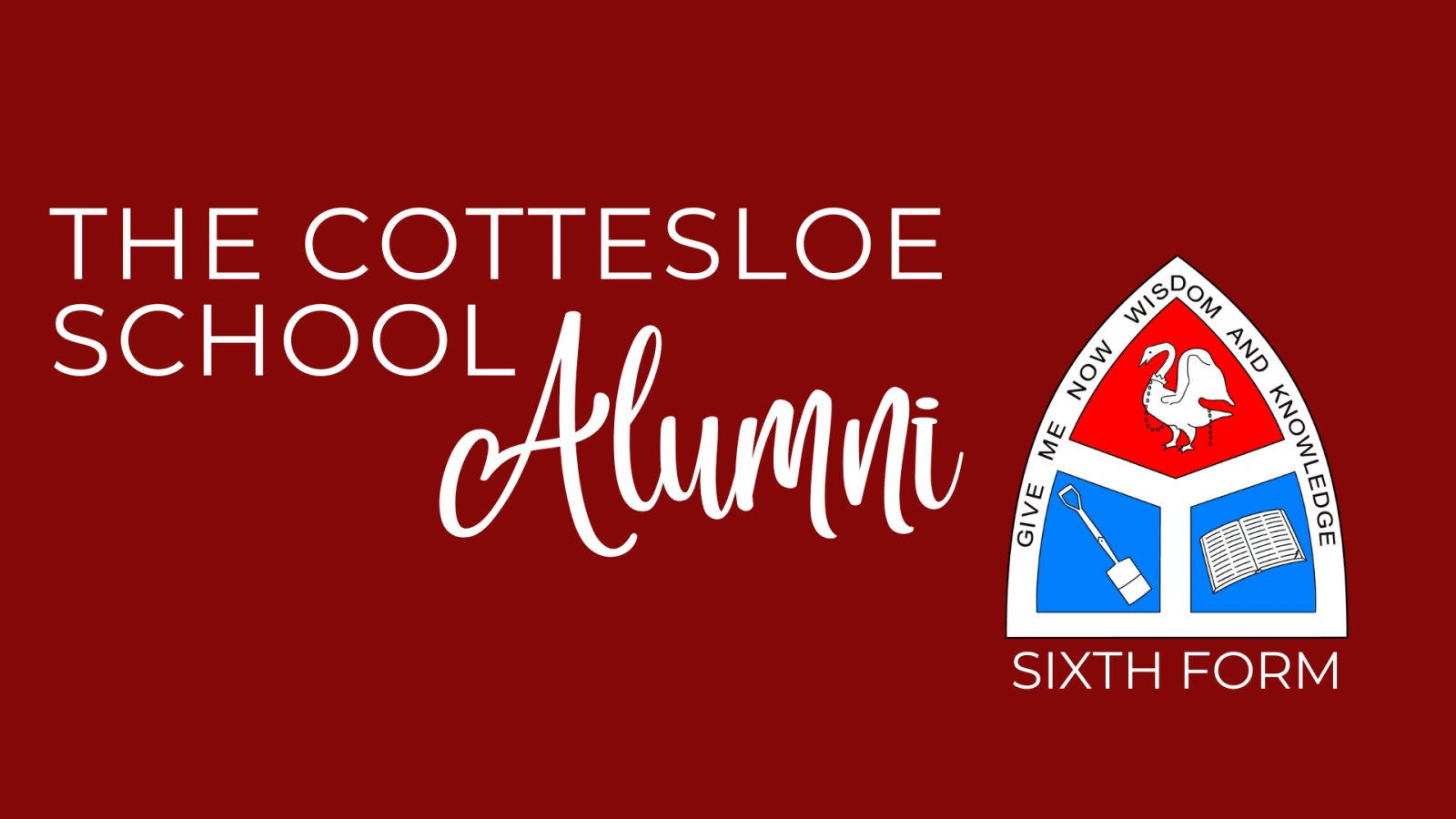Sixth Form
Welcome to The Cottesloe Sixth Form
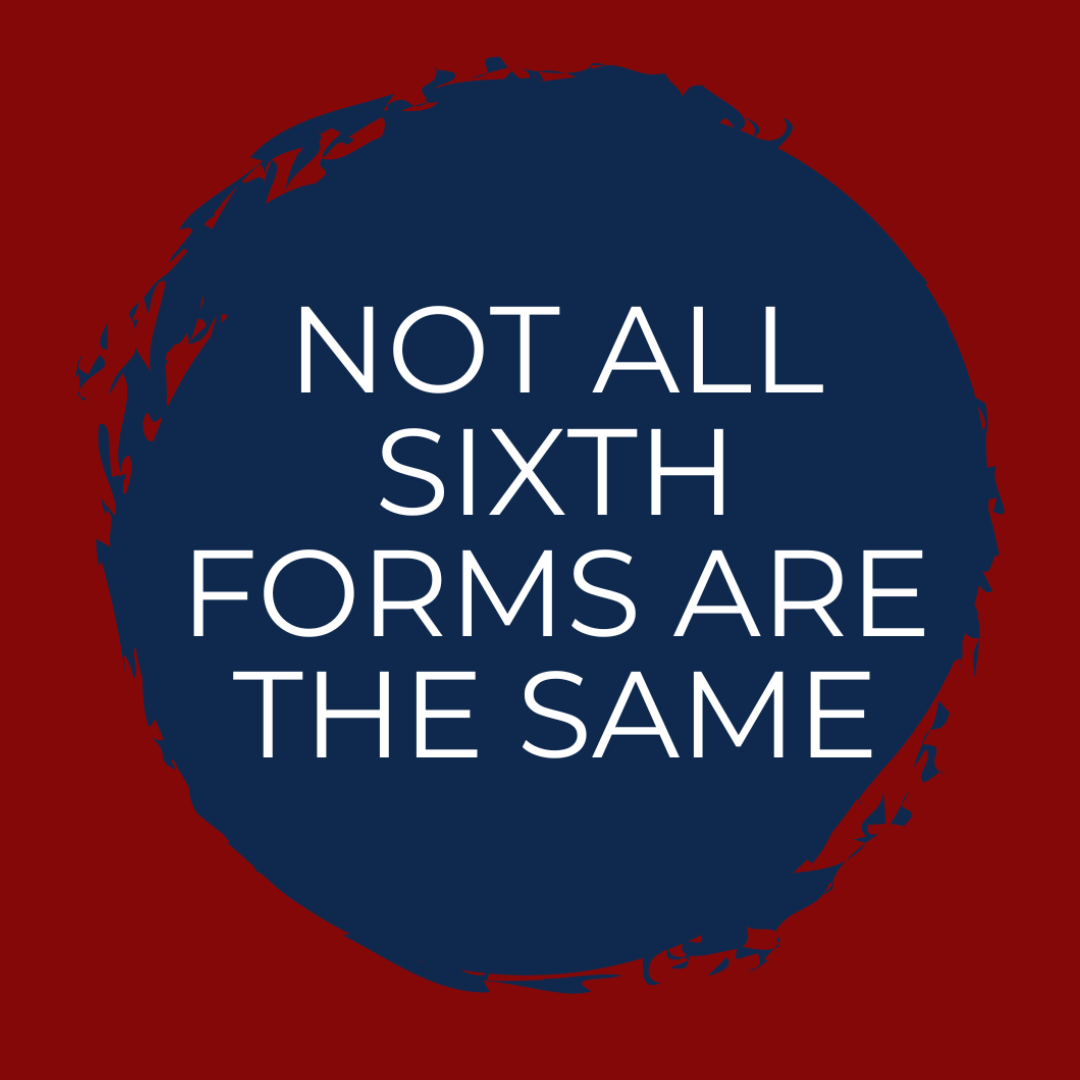
Our Sixth Form embodies every aspect of The Cottesloe School ethos and is central to the everyday life of all that happens here. Taking a lead in the wellbeing and achievement of all students is at the forefront of what the students do in Years 12 and 13.
Our key aim in the Sixth Form is to support students in achieving the success they need to pursue their chosen goals. Students are supported through the School’s excellent pastoral care system and are assigned a tutor who monitors their progress and oversees their personal development throughout their time in the Sixth Form.
We have high academic standards and have been delighted with our consistently excellent examination results over a number of years. We pride ourselves on running an inclusive Sixth Form and seek to see the success of all our students regardless of their individual aspirations or any challenges they may face. These excellent results create the opportunity for students to move on successfully to their choice of university (including Oxbridge and other Russell Group universities), to further training or directly into employment.
In summary, The Cottesloe Sixth Form has a huge amount to offer and gives students the opportunity to develop academically through stimulating and exciting courses, as well as more broadly as individuals through a range of extracurricular activities and experiences
Mr Youngs
Head of Sixth Form
Open Evening Presentation (link)
Open Events for 2024 admissions (link)
How to apply
The criteria for entry into the Sixth Form at The Cottesloe School is a minimum of 38 points overall from the best eight GCSE subjects including a Grade 4 in English Language and Mathematics.
In addition, students must meet the specific subject criteria.
How do I work out my GCSE points score?
In order to calculate your points score, you will need to add up your total number of GCSE points for the best eight subjects including English and Maths.
Your best eight GCSE points score is calculated using the following information:
A) GCSE Grade 9 to 1 Score
Triple Science counts as 3 subjects in total
- Biology grade = 6 points
- Chemistry grade = 5 points
- Physics grade = 7 points
Total = 18 points
Combined Science counts as two subjects in total
e.g. Combined Science grades = 6.5 points
Total = 11 points
B) BTEC/Other Level 2 qualifications (Level 1 qualifications or scores do not count towards points score)
-
Distinction* = 8.5 points
-
Distinction* = 7 points
-
Merit = 5.5 points
-
Pass = 4 points
Please remember:
You need to meet any subject-specific criteria for particular Level 3 courses as set out in the Course Specific GCSE Requirements below.
Course-Specific GCSE Entry Requirements 2024-25 (PDF)
Option Blocks 2024-25 (PDF)
The PDF shows a proposed list of courses for September 2024/25. Courses may be changed, added to or removed depending on student numbers and staffing.
The deadline for applications has now passed, however, if you need to speak to the Sixth Form Team, please contact us.
Sixth Form Staff
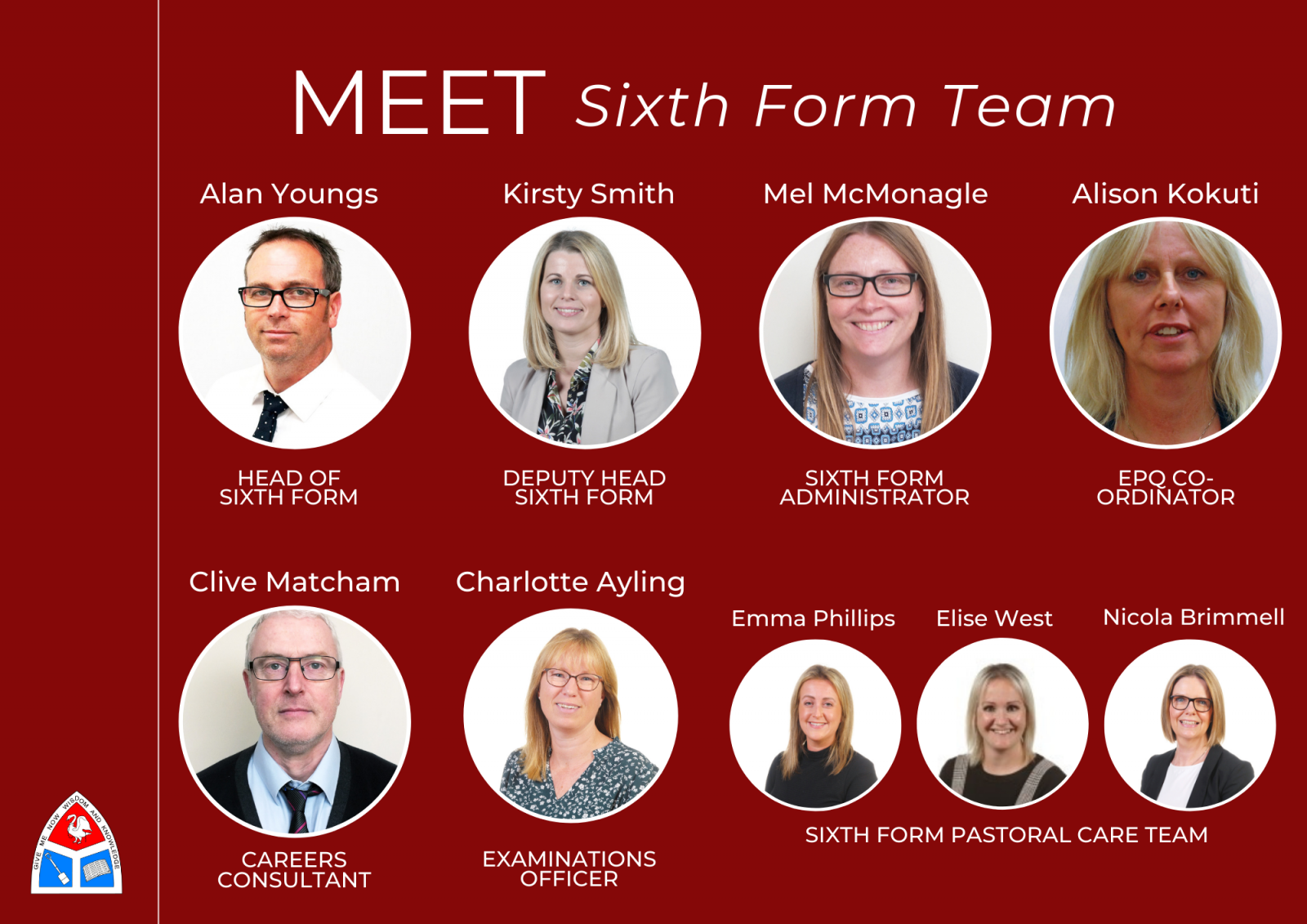
Course Content
- Art and Design
- Business
- Computer Science
- Criminology
- Design and Technology
- Economics FROM SEPT 2024
- English Language
- English Literature
- Ethics and Philosophy
- Further Maths
- Financial Studies THIS COURSE ENDS JULY 2024
- French
- Geography
- Health and Social Care BTEC
- History
- Mathematics
- Psychology
- Sociology
- Sport Studies BTEC
- Biology
- Chemistry
- Physics
- Applied Human Biology BTEC
Extended Project Qualification (EPQ)
- Designed by universities
- Develop research and presentation skills
- Develop independence
What is the Extended Project Qualification (EPQ)
EPQ is an A-Level standard standalone qualification designed to extend and develop your students' abilities beyond the A-Level syllabus and prepare them for university or their future careers.
- it can be taken as an extension of other Level 3 qualifications or vocational qualifications
- it's worth half an A-Level (28 UCAS points)
- it's recognised by universities and employers
- many universities make lower A-level offers to students undertaking an EPQ.
How it works
The EPQ allows students to lead their own projects. Students get to plan and carry out research on a topic that they've chosen and isn't covered by their other qualifications. They can take inspiration from something touched on in class or something personal and unrelated to their studies. They then use this research to produce a written report and, in the case of practical projects, an artefact or a production.
By taking responsibility for the choice, design and decision-making of an individual project (or an individual role in a group project) students:
- become more critical, reflective and independent learners
- develop and apply decision-making and problem-solving skills
- increase their planning, research, analysis, synthesis, evaluation and presentation skills
- learn to apply technologies confidently
- demonstrate creativity, initiative and enterprise.
Undertaking an EPQ can also deliver other benefits for students and schools, such as:
- improved A-Level performance for students taking EPQ
- boosting student recruitment by making your curriculum more attractive
- increasing student motivation by allowing them to study topics of personal interest
- enabling students to apply their new skills to other areas of study.
Performance table points and UCAS points
Tables of information show how the EPQ counts towards Performance table points and UCAS points.
Subject Ambassadors
Students who have shown a particular ability in a subject can be nominated by their teacher to be a subject ambassador. They play a pivotal role in supporting the delivery and promotion of the subject. Their tasks include, presentations to other students, mentoring, and representing the subject at open evenings.
We believe that this helps them embed their own knowledge as well as providing an alternative vessel for learning for other students.
Our Subject Ambassadors have prepared presentations to help students:
- Art and Design
- Biology (PDF)
- Business Studies BTEC (PDF)
- Chemistry (PDF)
- Computer Science (PDF)
- Core Maths (PDF)
- Criminology (PDF)
- Design and Technology (PDF)
- English Language (PDF)
- English Literature (Video)
- Ethics and Philosophy (PDF)
- Financial Studies (PDF)
- Geography (PDF)
- History
- Mathematics (PDF)
- Physics (PDF)
- Psychology (PDF)
- Sociology (PDF)
- Sport Studies BTEC
Head Students
Head Students 2023/4
Frankie Tolan-Pope
"I cannot wait to go into Year 13 having been chosen to be one of the Head Students. I am currently studying History, Geography and Sociology along with doing an AS level in Core Maths during Year 12. Looking beyond Sixth Form, I am hoping to go into Sustainability and International Relationships within businesses. Now being a Head Student, I want to show myself as an approachable person around school, and be here to help anyone who needs it. After seven years at this school, I hope to demonstrate the skills and attitudes which I’ve been taught. As a team, we will work together in maintaining a positive atmosphere around school and maximising everyone’s capabilities in their educational achievement."
Ben Ryan
"I am honoured and proud to have been appointed one of the Head Students at The Cottesloe School. Progressing into my second year of Sixth Form I will be studying Ethics and Philosophy, Design Technology, Business as well as also competing Core Maths in Year 1. After I finish Sixth Form I will be taking a gap year where I will be able to travel and gain many life skills along the way. After this I hope to be going to university or an apprenticeship within the architecture and design industry. As a Head Student I wish to be someone that students are not hesitant to talk to and approachable by everyone within the school. I want to work closely with the other Head Students in order to carry out the role in the most efficient way possible, as well as bringing a positive change to The Cottesloe School."
Hazel Williams
"I am so excited to have been given the opportunity of being a Head Student for this academic year. I am studying Chemistry, Biology and Geography and have just finished my Core Maths AS level. My aspiration post-Sixth Form is to become a dentist and be a positive influence on the community. As a Head Student I want to ensure everyone feels welcomed in our school in order to get the most out of their education and benefit from the unique opportunities being a part of The Cottesloe School presents."
Thomas Marshall

"I am delighted to have been selected for Head Students this year. Going in to Year 13, I am currently studying English Language, Maths and Computer science as well as having completed an EPQ in my first year at Sixth Form. My aspirations are to go to university and study to be a software engineer or another occupation in that field. I hope to be someone younger students can approach easily if they have an issue, whether it’s academic or personal, and someone that can reflect the positive attributes the school promotes."
Preparations for Exams
At the Cottesloe Sixth Form, we have an expansive exam preparation programme, to prepare our students for taking their exams.
Mock Exams
This booklet (link) contains instructions and guidance for the November assessments. You will also find an exam timetable and revision schedules.
Please look carefully at the subject topic guide for each exam to ensure that you focus your practice appropriately.
Exam Hour
As part of their programme, students will have a weekly assessment in one of their subjects. This takes place in the Main Hall where they will sit their final exams and is strictly invigilated in the same manner.
The aim is not only to closely monitor the progress of the students in a formal manner but also to get students used to the examination environment, right down to the exam desks and chairs.
We have used this system for 4 years now and has been core to achieving consistently high exam results.
Quiet Study Room
Effective use of independent study time is crucial to the success of students when studying A-Levels. As such, a large proportion of private study is timetabled in the Quiet Study Room (QSR) which is supervised by teaching staff throughout the day to ensure that silent study is maintained and students remain focused on their tasks.
Specific QSR tasks are set by individual subjects on a biweekly basis. The activities are designed to provide interleaved tasks from previous areas of study, forward topic research and wider reading.
The number of periods that students spend in the QSR is flexible and can be increased or decreased as necessary according to their level of progress or the support that they need.
Positions of Responsibility
Students are encouraged to take up roles within the wider school that will provide them with the opportunity to gain broader personal skills to help prepare their UCAS reference or Apprenticeship application. This includes the following:
- Subject support
- Accelerated reader assistant
- Mind ambassador
- Year team pastoral support
- Subject Ambassadors
Performance and Results
University and Apprenticeship Destinations 2022|23
Universities
We are proud that 61 of our Year 13s of 2022 have secured places at universities all over the UK.
- Art
- Biological Science
- Biology
- Biomedical Science
- Business x 6
- Civil Engineering
- Computer Engineering
- Computer Science x 4
- Criminology x 5
- Economics
- Electronic Engineering
- English
- English & Sport
- Fashion Management
- Geography x 5
- Geology
- History x 4
- International Relations
- Journalism
- Law x2
- Literature
- Maths x 2
- Maths and Biology
- Mechanical Engineering
- Midwifery
- Multimedia Journalism
- Neuroscience
- Nursing
- Product Design
- Psychology x 7
- Psychology & Criminology
- Social Science
- Sport Coaching
- Vet Science
Apprenticeships
We are proud that 8 of our Year 13s of 2022 have secured apprenticeships.
Pastoral Care
As in the rest of the School, pastoral care in the Sixth Form is at the core of our students’ experience at The Cottesloe School as the welfare of our students is one of our fundamental priorities. The Form Tutor is the first point of contact if there are any problems or if a subject teacher or parents has any concerns. Form Tutors meet all their students daily and also meet with students more formally on a one-to-one basis on a number of occasions during the year. This tutor-student link is a vital and essential factor in ensuring the success and welfare of the students. Support is also provided by Mr Youngs, Mrs Smith and Mel as part of the Sixth Form Leadership Team along with the ongoing support of ‘Team Hub’ which many students from within the school will be familiar with.
Dress Code
First and foremost, we believe that Sixth Formers should represent role models to other members of the school student body and this includes the way they present themselves. We also feel that the way that students dress should reflect their attitude to their studies. Dressing formally sets them up each morning to engage fully in the work process. Finally, it reduces any confusion regarding what does and does not represent acceptable attire. Details of the Dress Code are listed below.
Details of the Dress Code are listed below.
Option 1
- Collared shirts with a tie (Jacket optional)
- V neck jumper (not round neck), cardigan or waistcoat (optional). No sweatshirts.
- Smart shoes/boots only (e.g. brogues, ankle boots, desert boots, Doc Marten shoes - no Timberland type boot)
Option 2
- Tailored trousers, (jacket optional), skirt or dress (skirts and dresses must be an appropriate length and style for school as deemed by the Head of Sixth Form)
- Formal top, blouse or shirt (no midriff or shoulders visible) no slogans/images/large logos, no polo shirts or t-shirts
- Formal jumper, cardigan or waistcoat (optional). No sweatshirts.
- Smart shoes/boots only (e.g. brogues, flat pumps, ankle boots, desert boots, Doc Martens - no Timberland boots)
Additional points:
Clothing
NO
- denim
- cargos
- leather/faux leather trousers
- tracksuit bottoms/joggers
- gym wear
- ripped clothing/revealing clothing
- no excessive or large logos/branding to be worn on any clothing
- heavy patterns
- Any clothing deemed inappropriate
Other
- Hairstyles should be sensibly styled and not distracting in any way and should not be dyed excessively bright colours
- Piercings should be subtle
- The Head of Sixth Form will have the final say on any items that are in question.
Consequences
Students that choose to attend The Cottesloe Sixth Form automatically agree to comply with the dress code above. Should a student not adhere to the dress code, the following consequences will be put in place.
Sixth Form tutors will check the dress code on a daily basis.
-
First offence - informal student warning to rectify - not logged.
-
Second offence - agreed time with your tutor to rectify dress code issue and this is logged on Go4Schools. Students will be given one week to sort the issue.
-
Third offence - tutor to contact parents and this is logged. Parents made aware of the situation - tutors refer back to the dress code document above.
-
Continuous non-adherence to the dress code - social and study time becomes directed time until the parent/guardian meeting takes place. Parent/guardian meeting with Head of Sixth Form and SLT link/Headteacher.
-
Persistent failure following the meeting will lead to all social and study time becoming directed time until the student adheres to the code.
If you have any questions please contact the Sixth Form Office.
Facilities
At The Cottesloe School, all lessons are taught within dedicated subject areas by highly qualified and experienced staff. We have a modern Sixth Form Study Centre which is used as a timetabled space for lessons as well as an area for independent study. Students will be timetabled for a minimum of 9 hours per week in the Quiet Study Room (QSR). This is a dedicated room for silent independent study and is supervised by staff throughout the day. In addition, there is a cafe-style work and relaxation area where food and drinks are served. The whole of the Sixth Form Centre is fully networked in order that students can work online during their study periods.
Admissions and Absences
UCAS Points Explained
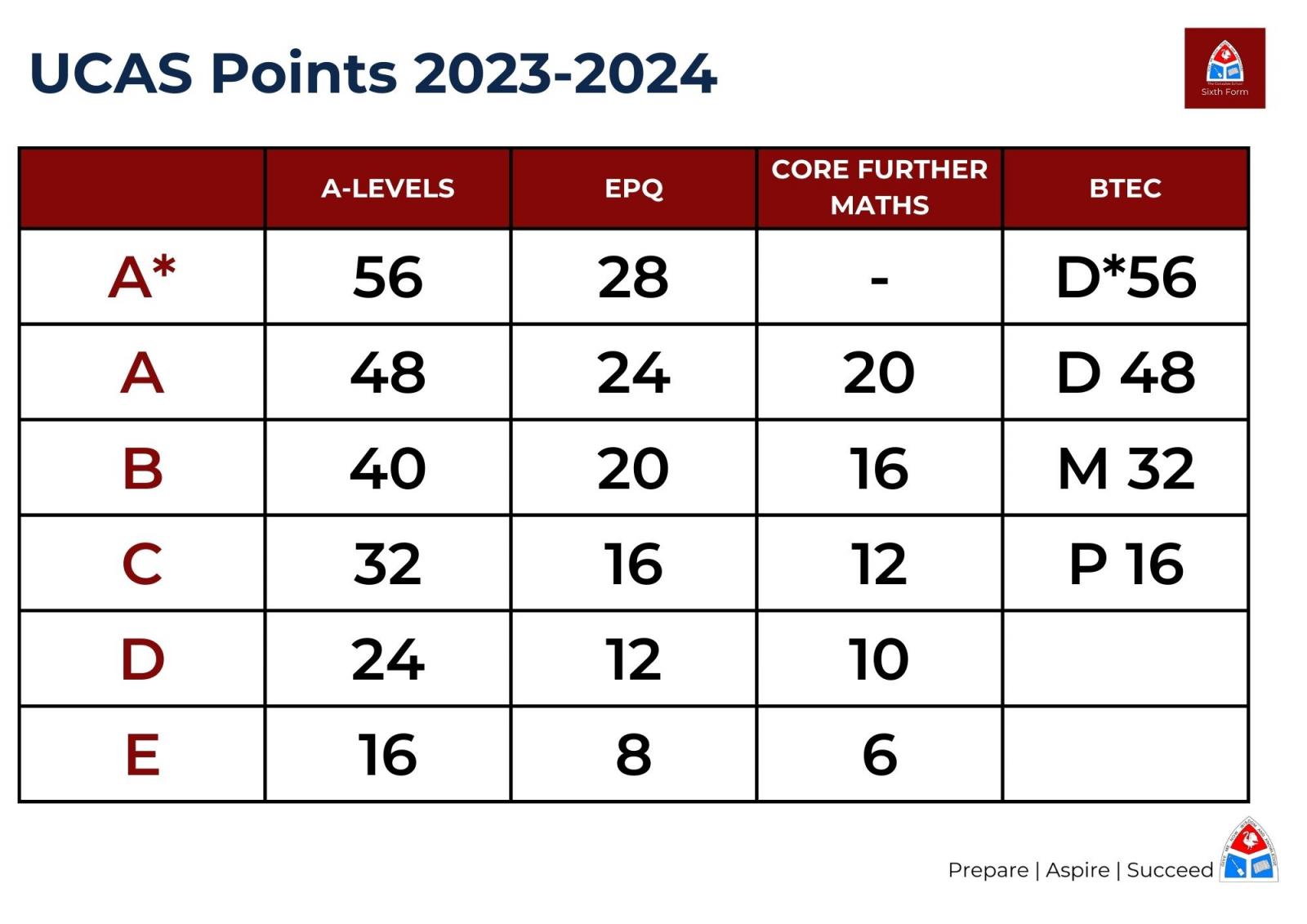
What are UCAS Tariff points?
UCAS Tariff points translate your qualifications and grades into a numerical value. Many qualifications (but not all) have a UCAS Tariff value, which will vary depending on the qualification size, and the grade you achieved. This numerical value is used by HE course providers to assess whether you meet their entry requirements for a particular course.​
How are UCAS Tariff points used?
Some universities, colleges, and conservatoires refer to UCAS Tariff points in their course entry requirements, but this doesn’t mean they won’t consider qualifications that don’t appear on the Tariff – so make sure you check the course entry requirements carefully!







.png)

